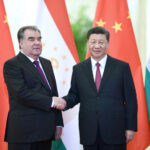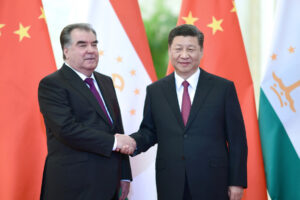“In Indonesia, now, wherever you look there is corruption,” the country’s Coordinating Minister for Politics and Security, Mohammad Mahfud Mahmodin (Mahfud MD), said in Kompas recently.
His statement strengthens data on the worsening corruption index in Indonesia. The Transparency International report for 2023 shows that Indonesia’s corruption perception index has decreased by four points from the previous year, meaning that all sectors in Indonesia are at risk of corruption, including the energy sector.
In that sector last year, Indonesia obtained a commitment to finance the energy transition through the Just Energy Transition Partnership (JETP) scheme. Under this scheme, Indonesia will receive $20 billion in funding. So, in the context of corruption risk, JETP funds are vulnerable too, if not managed properly.
If corruption occurs in the JETP program, it will harm the public interest, and the energy transition program within JETP will fail. Meanwhile, the public must continue to pay off the foreign debt created by the JETP program. So, where are the points of vulnerability for corruption in the JETP program?

One point where corruption has the potential to occur is the early retirement program for coal-fired power plants (PLTU). The possibility of collusion to enrich corporations could occur in this case.
In addition, the program that will receive JETP funding is the development of renewable energy. As with the early retirement of coal plants, this choice is also prone to corruption.
If these two pillars of the energy transition later become the arena for corruption by political and economic elites in Indonesia, it is certain that the energy transition program will fail. The question then is how to prevent corruption in JETP funds?
Like other crimes, corruption occurs when we give opportunities to political and economic elites to do so. One way to close this opportunity is to open space for public involvement. In the context of JETP, public involvement must start with planning, monitoring and evaluation of its programs.
One of the main conditions for public involvement is public information disclosure. Such disclosure is an entry point for the public to be involved in making energy transition policies. Without it, there will be no public involvement. Unfortunately, this is a weakness in the JETP scheme.

Until now, for example, the composition of JETP’s funding is still unclear. As often stated by the government, JETP funding comes from public and private investment in the form of grants and low interest loans. Until now, it is unclear what percentage of project financing will be funded by grants, investment and foreign debt. The public especially needs to know what percentage of JETP projects are funded by foreign debt. After all, public tax money will be used to pay every rupiah of foreign debt made by the government, including in this JETP project.
Other issues of information disclosure in JETP are also related to the projects that it is funding. The Ministry of Energy and Mineral Resources often discloses that one of the JETP projects will be used to finance PLTU, but until now, no information has been disclosed regarding studies on the coal plants that will be retired. The criteria regarding the PLTU that will be retired are also still unclear. In fact, the unclear criteria for a PLTU to be retired could become a field of rampant corruption of political and economic elites.
Not only related to PLTU, JETP will also finance the development of renewable energy. However, until now the information has not been disclosed about what kind of renewable energy will be financed by it.
Unfortunately, what the Ministry of Energy and Mineral Resources has disclosed is a plan to include fossil gas power projects in the JETP funding scheme. Fossil gas is clearly not a renewable energy, so where is the energy transition program? The question is, whose energy business group’s interests will benefit from the proposal to include fossil gas in the JETP program?
In mid-February, the Ministry of Energy and Mineral Resources (ESDM) officially formed the JETP Secretariat. The next question is whether that will be able to eliminate the potential for corruption? The answer can be yes and no.

The JETP Secretariat will only be able to eliminate the potential for corruption in funding if the agency starts openly disclosing information. After public information regarding JETP is opened, the next task of the Secretariat is to involve the public in program planning. If planning only involves elites, then corruption will be difficult to prevent.
The JETP Secretariat can actually open the door to corruption, if it continues to limit public information. How is it possible that JETP funds, which amount to hundreds of trillions of rupiah, are being managed in a closed manner? Who are the political and economic elites who will have a party if JETP funds are managed like this?
What is clear is that if JETP’s weaknesses continue, the public will be victimized by corruption.
Source : Mongabay















